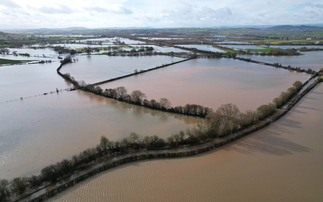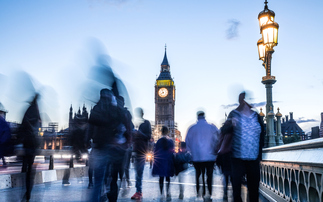Miguel Arias Cañete's speech in full after the COP21 climate conference yesterday
After many years of relentless efforts, we got a global climate deal in Paris. This deal is a major win for the global community. The Paris agreement is the first-ever truly global climate deal.
The Paris agreement is the major multilateral deal of the twenty-first century.
But Paris is much more than the deal. Paris is also about diplomacy, geopolitics and influence.And in this context, Paris is a major win for Europe and its allies.
Today, I would like to tell you a story.
A story about how Europe and its allies shaped the Paris deal.
A story about how Europe and its allies managed to put pressure on the big emitters.
A story about how Europe and its allies made history.
The High Ambition Coalition
Some of you may have heard this name emerging in Paris. The High Ambition Coalition.
Some claimed that it was an accident of Paris. Others that it was just a loose and random grouping of countries.
Well, they were wrong.
The High Ambition Coalition is the masterplan of Europe and its allies conceived over the year. It's a group of developed and developing countries that changed the game in Paris.
But before, let us step back and look at what happened at the Copenhagen conference in 2009.
Why did Copenhagen fail?
For three reasons:
First, because the world was not ready.
Second, because many countries were not willing to commit.
And third, because all those countries not willing to commit managed to sharply divide the developed and the developing worlds and create two opposite blocks.
Indeed, in Copenhagen the story was about countries against countries, developed versus developing, them and us.
So what happened since then? Has the world changed so much since? Well, partly yes.
Many have realised that climate change knows no borders.
Many have realised that the impacts of climate change affects us all.
Many have realised that you cannot fix the climate without the bigger emitters on board.
Today, developed countries account for less than 35 per cent of total emissions - and falling. Developing countries account for 65 per cent.
Without major developing countries emitters such as China, India, Brazil, South Africa or Indonesia, we simply cannot fix the climate.
In Copenhagen, Europe was criticized for not being in the room where deals were crunched. A sentiment of frustration, and even political humiliation, was present in many European delegates.
In the face of this, the European Union only had one option: wipe the tears, get its act together and keep pushing. But pushing creatively, strategically.
In the climate conference of Durban in 2011, the EU and a number of developing countries pushed jointly and got countries to agree a roadmap towards Paris.
I want to pay tribute to my predecessor Connie Hedegaard for her magnificent work and relentless efforts to bring all countries, developed and developing, around the table.
Without Durban, we would not be here today.
Building on that, Europe and a small group of countries, developed and developing, rich and poor, big and small, have been meeting discreetly over the last year with one clear goal: put pressure on the big emitters and strive for the highest level of ambition.
The first meeting of this group took place on 17 May in Berlin back to back to the Petersberg Dialogue. The meeting was co-chaired by the Norwegian minister and myself.
There were ministers and representatives from Angola, Marshall Islands, Germany, Grenada, Peru, Santa Lucia, UK, Gambia, Colombia, Chili, Mexico and Switzerland.
We were labeled as "the progressives".
In the first meeting, we were only a small bunch. But he had much in common.
We wanted a long-term goal. We wanted 5-year reviews. We wanted a common, robust set of transparency and accountability rules. And we wanted a fair deal on climate finance and support.
Since then, and also thanks to our climate champion and proud leader, the Foreign Minister of the Marshall Islands Tony De Brum, we have been meeting in the sidelines of major climate gatherings all over the year.
These include the Major Economies Forum in Luxembourg in July and New York in September, the informal consultation in Paris before the summer break and the Pre-COP in November.
In those rooms, we echoed the same messages and supported one another.
We created a sentiment of belonging and cohesion without being a formal negotiation group.
In between ministerial meetings, our officials and negotiators were meeting in different settings to align positions, plan outreach, seek common ground and propose language solutions.
But we were only a small group. We needed to reach out to others and invite them to join. We needed to expand. We needed to recruit.
This is why Minister de Brum and many of us hit the road and met key partner countries to talk to them about our meetings.
As part of this outreach, I travelled to Papua New Guinea in the Pacific, to Morocco in Africa and to Ecuador and Brazil in Latin America.
In Papua New Guinea, I met with almost all the leaders of the region, signed clean energy declarations and discussed a joint strategy for Paris.
In Morocco, I met with the tireless Environment minister Hakima El Haite.
We agreed to organize an international forum in Rabat to take stock of the INDCs on the table before Paris.
In Rabat, we showed to the world that the INDCs were great but not enough to stay below 2 degrees.
Therefore, we showed to the world that more was needed and that three key elements would get us there: a long-term goal, regular review and clear transparency rules.
The Rabat Forum was also a good occasion to reach out to many African ministers about our "progressives meetings" and invite them to join.
We were recruiting.
In Latin America, I travelled to Brazil and Ecuador.
In Rio, I met with Minister Teixeira and approached positions on the five years review, strong legal form of the targets and a more modern interpretation of the principle that guides the distribution of responsibilities between developed and developing countries.
Brazil joining would be a game changer. Brazil was a member of the BASIC group (made up of Brazil, India, South Africa and China), a group traditionally perceived as the hardline guardians of the reluctant developing countries.
In Quito, I met with many progressive Latin American countries of the AILAC group composed of Guatemala, Peru, Chili, Colombia, Costa Rica and many others.
In parallel to this outreach, the Europeans had already agreed Council Conclusions on the negotiation positions for Paris and on climate finance. These made Euripi a unified and reliable partner.
So the group was growing bigger, with many new countries joining. By November, ministers in the room represented more than 80 countries.
The group was also growing better, with many new creative ideas and substantive discussions. And we decided to label our meetings the "Informal Ministerial Gatherings".
So the rumor in the formal negotiations rooms was that there was a group of developed and developing countries across the board aligning their positions before major negotiation rounds and calling for ambition.
We were called the "ambition coalition".
And suddenly, a day before the pre-COP ministerial in November in Paris, the United Stated knocked on our door.
In fairness, we were all a bit surprised in the beginning as the US had not shown flexibilities on our key demands over the last year
But that started to change as we were entering in the final stretch of the talks.
So on Sunday 6 December, the US joined us in a dinner and we all realized that they were moving, while China stuck to its position.
On Tuesday 8 December, the European Union made a breakthrough announcement: we teamed up with 79 African, Caribbean and Pacific countries in calling for an ambitious deal and agreed on the core elements of the Paris deal. Our group was now even more stronger.
The US then wanted to formally join our group of ambition.
So after long talks on legal form, long-term goal and climate finance, we all agreed.
US Secretary John Kerry announced on Wednesday that the US would formally join us in the group.
Now, we were the "High Ambition Coalition".
And many others joined: Philippines, Canada, Seychelles, Switzerland, Fiji, Japan, Uruguay, Australia, Iceland and Micronesia.
Our movement was unstoppable. We were meeting more frequently and discussed common strategy.
And then Brazil happened.
That was a game changer. Once a BASIC country, Brazil would be part of our coalition.
After our meeting on Friday, we walked all together to the plenary.
At that point, I knew that we would get a good deal in Paris. That was the confirmation.
And we did. Our alliance worked. This is the most ambitious deal we could get.
For the first time ever in a legal agreement, we reaffirm our long-term goal to prevent the adverse effects of climate change.
We agree to come back every five years, to take stock, to look at the latest science, and to ramp up our commitments accordingly.
We decide to build a transparent system to facilitate action, to track progress and to ensure delivery.
In all of this, we will increase our support to the vulnerable to adapt to climate change and to cope with loss and damages.
The level of US$ 100bn will be the floor for the support from developed countries. From this floor, we will scale up.
Paris is the culmination of years of efforts by Europe for a universal multilateral agreement on climate change.
Europe has been a strong voice for ambition, bringing the European experience of effective climate policy and our tradition of negotiations and rules-based international cooperation.
Before Paris, and in Paris, Europe has been at the heart of the High Ambition Coalition of developed and developing countries.
Together, we helped shape the successful outcome of this conference.
The High Ambition Coalition brought together the biggest players and smaller developing countries.
And all of a sudden, the debate was not about developed versus developing.
It was about the willing versus the unwilling. And no one wanted to be seen as the unwilling.
And then, Fabius gavelled the deal through.
We must enjoy this historic moment.
But the hard work has only just begun. What has been promised must now be delivered.
Today, let me assure you once thing: we should all be proud of Europe.
Europe has gone through turbulent times over the last few years.
The economic and social crisis has tested the limits of solidarity and questioned the confidence of Europeans on their leaders.
Today, Europeans should be proud of Europe. We should all be proud of Europe.
We made a major contribution for a deal to happen in Paris.
Many thanks.
This article is part of BusinessGreen's Road to Paris hub, hosted in association with PwC.







